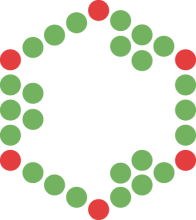Google Citation Wordcloud
I am really schizophrenic over the importance and relevance of citations statistics - of course there are always great reasons why your citations are lower than they should really be, and why your peers citations are higher than they should be. However, it is the case that they are a necessary evil as an academic, and human psychology draws us in, like a single-minded light-obsessed moth to a candle flame, to comparing ourselves against each other in various ways. I used to use Thomson Reuter's Web of Science for this, but the tools to manage a personal list are odd and clunky, and the system seems to have recently been ported to an old 80286 with 4MB of RAM (the spec of my first personal Unix machine, with a built-like-a-tank American Megatrends Inc motherboard. Ahhh good-times with "Uncle Mark" and "Spock The Vulcan"); To counter this frustration, Google Scholar Citations has recently gone public, and it is great, easy tools to validate and merge publications, the ability to have private or public views on the data - the only thing that seems snafu'd is the adding of a link to a home page (it just replies that I need to add a valid link). I won't post a link to my citation page (it is public though), since they are, between you and me, shameful, since I wasn't able to publish the best stuff while I was in industry (damn, there I go again!).....
Anyway, Google Scholar Citations can be programmed against, and Google Plus alerted me to an R script that can draw a word cloud for co-authors and key-words for a given author.
The R source is here, but you may need to install some other packages to get it to run. The image above is the word cloud for all of my publishing career - all 23 years of it. It's interesting to see the protein structure and comparative modelling stuff as the strongest concepts, but this has also been the basis of a lot of the more recent work, including the database stuff. At the end of the day, for me, 3-D structure is the most satisfying and stimulating way to thing about ligand data and design.
I must admit I didn't know that R did word clouds, so expect a few more gibberish filled blog posts while I play with this!
PS If this post sounds like a eulogy and advert for Google, it most definately isn't, since they recently decided to shut down their University Research Programme to Google Search :( boo. hiss.

